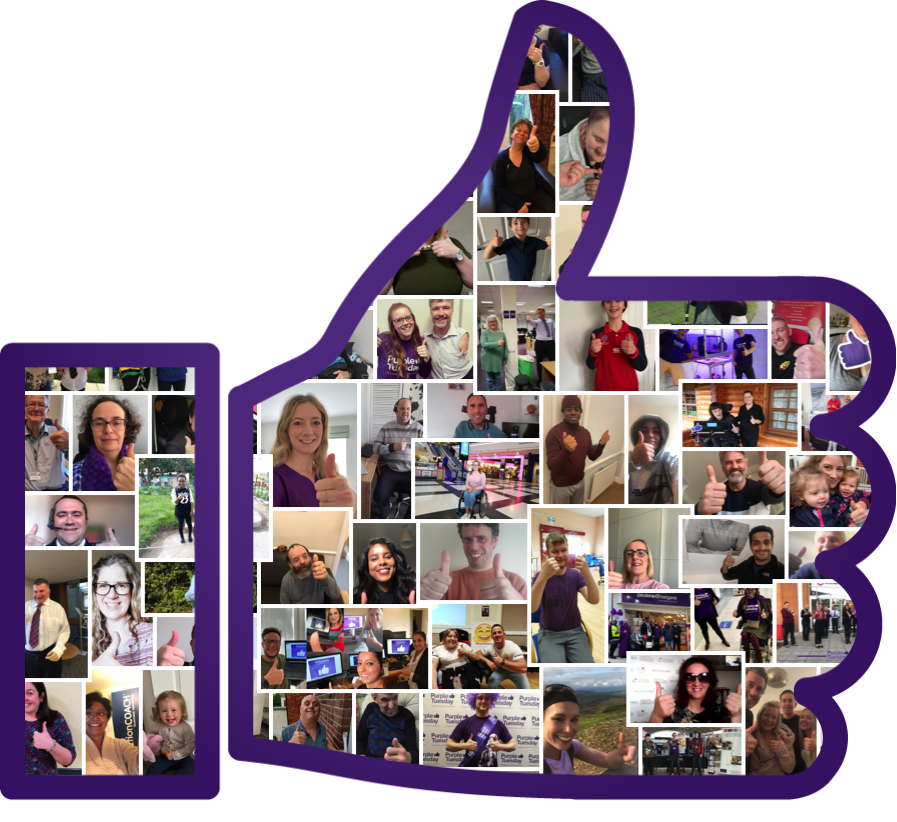Despite progress made over the years, businesses can and should be doing more to ensure their services are more accessible to 14 million disabled people living in the UK. Not only is it the morally right thing to do, it is just plain good for business.
In an effort to address this issue within the care sector, CareTech Foundation is proud to be partnering with the Purple Tuesday initiative to help bring to light the need for improving the experiences of disabled people within the sector as both employees and consumers. We are thrilled that Care Talk Magazine has agreed to be the media partner for this really important initiative.

As their brilliant founder and CEO Mike Adams OBE explains in his article in this edition, Purple supports organisations of all sizes and across all sectors to improve the disabled customer experience. Purple also provides HR solutions to attract, recruit and retain disabled talent; support and guidance to Boards and/or business owners; and consultancy, audit and training services to management teams and their staff. Purple Tuesday itself is scheduled to take place on 2nd November this year.
It would be foolish for care sector leaders not to utilise the resources that the disabled community offers, especially given the circumstances we face as a sector.
As I have mentioned in previous articles, one of the major issues we will face in the coming years is the growing gap between those in need of care and those qualified to care for them. Recruitment is down and people are leaving the sector for other opportunities. This has been exacerbated by the COVID-19 pandemic which has led to increased mental health issues amongst care sector professionals who have faced the most difficult of circumstances during the pandemic.
There is an array of untapped and often overlooked potential in the UK’s disabled community who, according to the Department of Work & Pensions, account for 7.7 million people of working age.
Not only does hiring from this community address the historically significant gap between the proportion of disabled people employed compared with non-disabled people, but it also benefits the business side of social care.
Per the Department of Work & Pensions, the costs of making adjustments to accommodate disabled employees are often low and the benefits of retaining an experienced, skilled employee who has acquired an impairment are usually greater than recruiting and training new staff. Hiring from the disabled community increases the number of high quality applicants to open positions, brings additional skills and perspectives to one’s business, and creates a workforce that reflects the diverse range of customers it serves and the communities it helps. Implementing strategies that encourage recruitment from this community into the care sector should be prioritised as a way to address future recruitment and retention needs.
The care sector should be equally as eager to make the necessary adjustments to attract disabled consumers.
The days of thinking about ‘service users’ as the passive recipients of care who should be grateful for others’ beneficence are long gone. Some estimates suggest that in England, 30–46% of residential care users, and 20–30% of domiciliary care users, fund their care privately (Baxter and Glendinning, 2015; Skills for Care and Development, quoted in Young and others, 2020). Current estimates suggest that the number of people self-funding in residential care has increased over the past 10 years (National Audit Office, 2021)
An ever-increasing percentage of the social care budget is now in the hands of individuals – quite rightly – so care providers should be thinking very carefully how to respond appropriately to those individuals and their desires/needs. From a business perspective, making basic adjustments is an opportunity to attract the spending power of the UK’s disabled population, which is estimated to be up to £274 billion a year.
Much more than this, care operators need to be proactive in listening to what their disabled customers are demanding and responding accordingly. The customer really is always right – and this is a true in social care as any other sector.
As the only corporate foundation in the care sector and as a Founder Patron of the Championing Social Care initiative, addressing the inadequacies that disabled people experience as both employees and consumers has been a huge priority for the CareTech Foundation. As part of our organisational impact goals to support disabled people whilst advocating and funding initiatives that support skills development for the care sector, we are committed to shining a light on the brilliant contribution of social care and its people whilst doing all we can to make it even better.
We really hope that care operators – public, private and charity alike – will join us in this powerful new campaign to put those with disabilities at the very heart of our organisations and the sector as a whole.
First published by Care Talk Magazine
